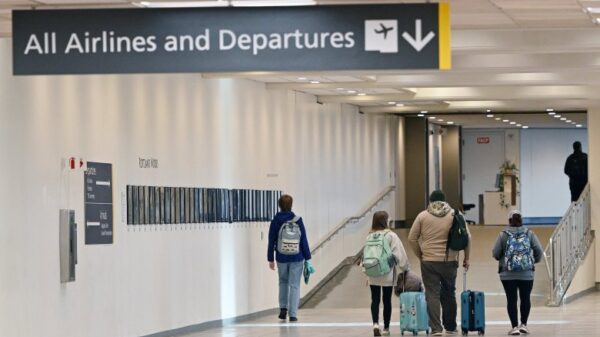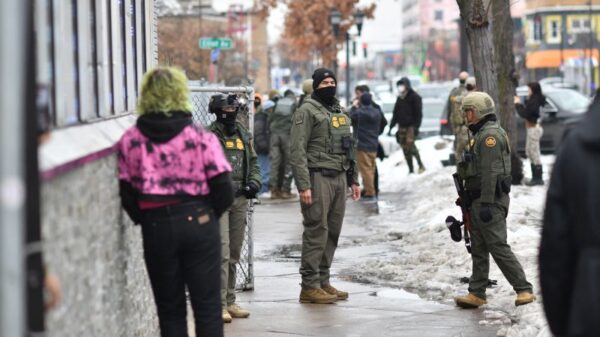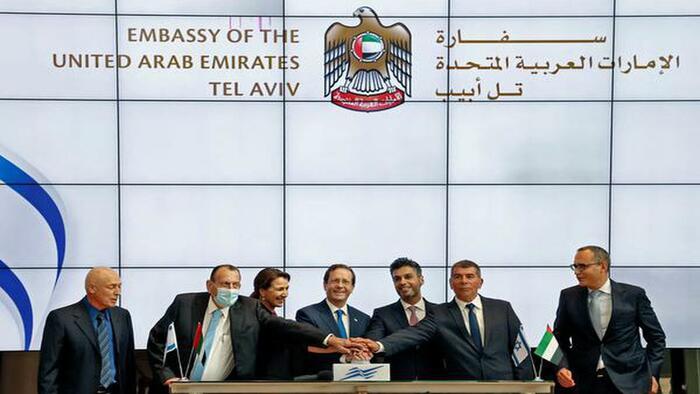Qatar is intensifying pressure on Arab nations with embassies in Israel to close their diplomatic missions. This move comes in response to recent Israeli airstrikes that targeted Doha, resulting in the deaths of several Hamas leaders, including Khalil al-Hayya, as well as a Qatari security official. Notably, the United Arab Emirates (UAE), which signed the Abraham Accords under the Trump administration and opened its embassy in Tel Aviv in July 2021, is a primary focus of Qatar’s efforts.
The escalating violence, particularly in Gaza, has complicated diplomatic relations in the region. According to reports, the UAE has condemned the Israeli attacks vehemently, summoning the Israeli deputy ambassador, David Ohad Horsandi, to express its outrage over what it termed an “outrageous attack” that violated Qatar’s sovereignty. A Gulf diplomat characterized the situation by stating, “The gloves are off,” indicating a shift in regional alliances and responses.
Washington had been attempting to expand the Abraham Accords to include more Gulf states, specifically Saudi Arabia. However, the ongoing Gaza conflict has severely undermined these initiatives, pushing normalization efforts further from reach. The diplomatic landscape is shifting rapidly as Qatar reevaluates its security ties with the United States. Reports from Haaretz indicate that Qatar’s Prime Minister has conveyed to the White House a reassessment of the security partnership, reflecting deepening tensions.
From Qatar’s perspective, accusations of hosting Hamas leaders are viewed as a betrayal. This sentiment could significantly impact cooperation with Israeli intelligence, particularly with Mossad, and influence other diplomatic interactions between Qatar and Israel. Historically, Gulf Cooperation Council (GCC) nations have collaborated closely with Israeli intelligence, particularly during the prolonged Syrian civil war, where the focus was on countering Iranian influence. Yet, the ongoing Gaza crisis has strained these relationships, which once aimed to counteract Iranian and Shia influence in the region.
Even Saudi Arabia, while publicly supportive of the Palestinian cause, is navigating complex internal pressures. The monarchy faces significant risk in pursuing normalization with Israel due to potential backlash from the public and the influential clerical establishment that oversees the kingdom’s Sharia courts. Concerns about destabilization of the monarchy are paramount, especially if the government were to expedite relations with Israel under Prime Minister Benjamin Netanyahu.
In an interview with CNN, Qatar’s Minister of Foreign Affairs, Mohammed bin Abdulrahman Al Thani, categorically rejected threats from Netanyahu, highlighting the hypocrisy of calling for justice while being implicated in acts of aggression. This ongoing conflict underscores the fragile state of relations in the region, with public sentiment often diverging sharply from the positions held by ruling elites.
As the situation develops, the implications for diplomatic ties among Gulf nations and Israel remain uncertain. With the Gaza conflict ongoing and calls for solidarity with Palestine rising among the populations of Gulf states, the future of the Abraham Accords appears increasingly precarious.






































































